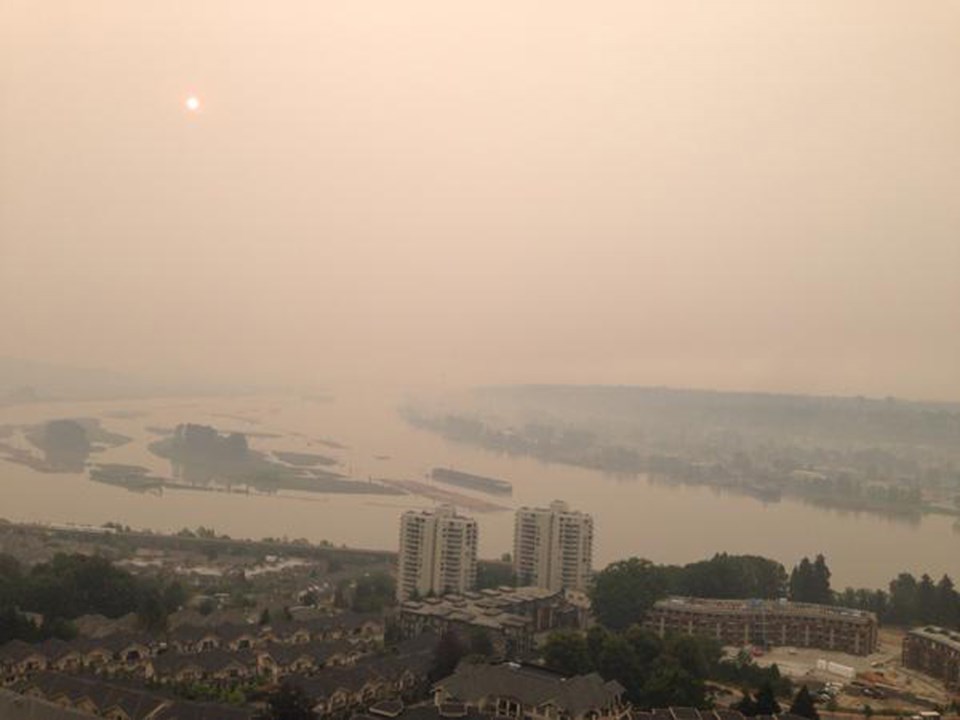New Westminster residents with asthma, chronic respiratory disease and heart failure are being warned to take precautions against a thick blanket of smoke hovering over Metro Vancouver.
The regional authority and Environment Canada issued a joint air-quality advisory Monday in response to smoke from wildfires that has shrouded much of the Lower Mainland, the Strait of Georgia, the southern half of Vancouver Island and parts of the Olympic Peninsula in Washington State since Sunday morning.
Air quality readings taken close to the New West border in South Burnaby show concentrations of fine particulate matter shooting past four times the target level over the last 24 hours.
“Exposure is particularly a concern for infants, the elderly and those who have diabetes, and lung or heart disease,” states the Metro Vancouver advisory. “Persons with chronic underlying medical conditions should postpone strenuous exercise until the advisory is lifted. Staying indoors and in air-conditioned spaces helps to reduce fine particulate exposure.”
People experiencing difficulty breathing, chest pain or discomfort, or the sudden onset of cough or irritation of airways are advised to contact their doctor.
Emergency rooms have seen a jump in respiratory-related visits since the smoke arrived, according to Fraser Health Authority spokesperson Tasleem Juma, but health officials can’t say conclusively whether the smoke is the cause.
“It’s difficult to determine whether it’s air quality, or heat or something else,” Juma told the NOW.
Fine particulate matter refers to airborne solids or liquid droplets with a diameter of 2.5 micrometres or less.
It can easily penetrate indoors because of its small size.
Most masks available at drug stores won’t filter out fine particulate matter, according to Fraser Health, so if people intend to use masks, they should make sure they are rated to filter out particles of 2.5 microns in size and that they are wearing them properly.
The poor air quality, caused by wildfires burning outside of the region, including a 200-acre fire near Sechelt, 60 kilometres northwest of Vancouver, and two much bigger fires (49,000-acres and 12,000-acres) near Pemberton, is expected to last until there is a change in the weather, according to Environment Canada.
Low-level wind patterns were changing as of Monday morning, according to Environment Canada, ushering in cooler marine air through the Juan de Fuca strait, but winds aloft were expected to remain light.
Environment Canada predicted slightly cooler temperatures and modest improvements in visibility and air quality but stated smoke aloft was expected to linger for some time.
Precautions for people with chronic underlying medical conditions:
·Stay in a cool, air-conditioned environment and reduce indoor sources of pollution such as smoking and vacuuming.
·Run an air cleaner. Some room air cleaners, such as HEPA filters, can help reduce indoor particulate levels, provided they are the right size for your home and filters are changed regularly.
·Take shelter in air-conditioned buildings which have large indoor volumes and limited entry of outdoor air.



